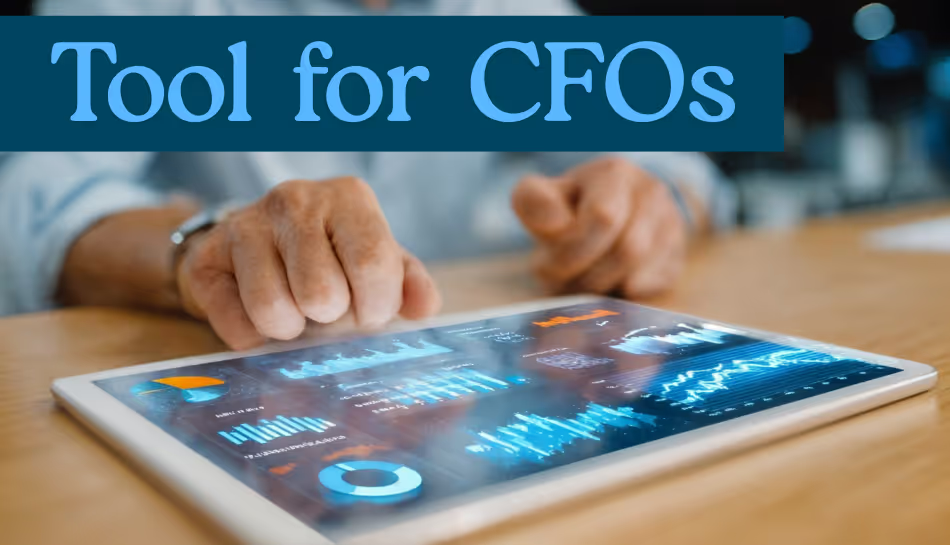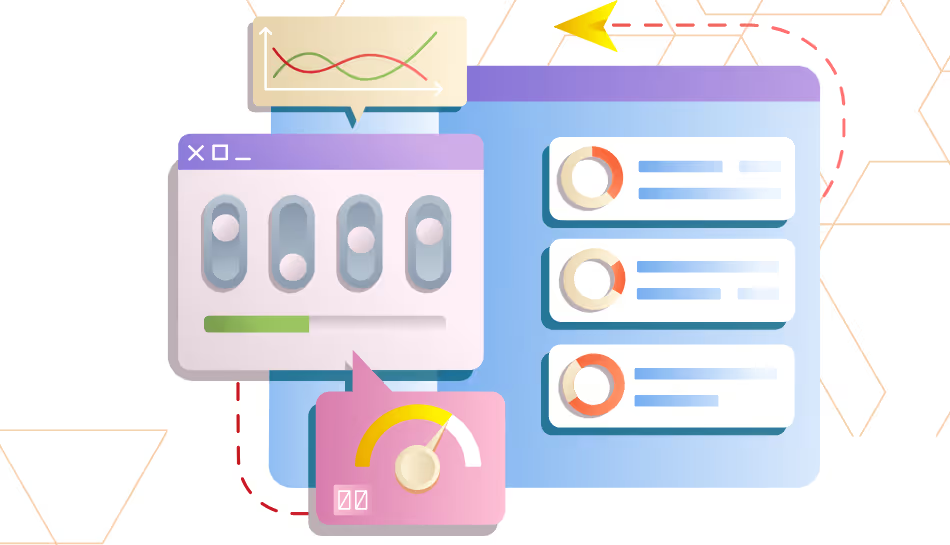
For today's Chief Financial Officers (CFOs), providing precise, data-based insights is no longer a choice, it's mandatory. Whether reporting to the board or investors, CFOs have to present transparent, actionable financial reports that transcend figures. But hand-crafting these reports is time-consuming and prone to errors. That's when an in-house custom financial reporting tool for CFOs comes into play.
Through the integration of automation, real-time analytics, and dashboard customization, these technologies enable finance chiefs to deliver accurate, thoughtful, and visually appealing reports. Let us see how personalized CFO dashboards and next-generation reporting transform financial communication and decision-making.
The Evolving Role of the CFO
Today's CFOs are more than gatekeepers of the finances. They're strategic collaborators who leverage data to fuel growth, predict trends, and drive corporate strategy. In that context, old-school spreadsheets and time-consuming reporting mechanisms are no longer adequate.
To satisfy increasing stakeholder expectations, CFOs require tools that provide instant financial reporting, customized flexibility, and interactive visualization of data. A contemporary CFO tool for financial reporting enables the finance leader to create customized reports for various audiences in such a way that every presentation is clear and relevant.
What Is a Custom Financial Reporting Tool for CFOs?
A tailor-made CFO financial reporting solution is software that collects data from different financial systems, such as ERP, accounting, and CRM systems, and transforms it into complete, readable reports. In contrast to static reports created manually, these solutions allow CFOs to filter, analyze, and display data dynamically.
Key benefits are data integration, dashboard customization, real-time updates, and auto-generate reporting. The outcome is an accelerated, more precise reporting process that minimizes manual effort and improves decision-making.
Advantages of Tailored CFO Dashboards
Top-notch tailored CFO dashboards do not just show financial information, they present actionable information in a glance. Here's how they contribute:
- Real-Time Financial Visibility: CFO dashboards provide real-time financial reporting to CFOs, providing access to current numbers in areas of revenue, cash flow, and expenses. Finance leaders can recognize trends, rectify variances, and take action without having to hold out for end-of-month reports.
- Insights for Various Audiences: All stakeholders do not require the same detail. Custom dashboards allow CFOs to build distinct views for the board, investors, or internal groups. For example, an investor dashboard could emphasize profitability and ROI, but an internal dashboard could flag cash management or cost control.
- Data Visualization for Clarity: Complex financial information is more intuitive when it is displayed in a visual format. Charts, heat maps, and trend lines enable stakeholders to quickly absorb key performance indicators. Visual reports enhance user experience and make financial conversations more strategic rather than technical.
- Seamless Integration and Automation: Contemporary CFO software for financial reporting interacts with ERP, accounting, and business intelligence systems. Automated synchronization of data minimizes manual updating and human error. Scheduled report creation also guarantees that the board members and investors get the most updated financial information at all times.
- Improved Accuracy and Compliance: Automation guarantees that each number in a report is accurate with the source system. This prevents differences that might arise when consolidating manually. Audit trails and data validation also assist with transparency and regulatory compliance.
How Custom Reporting Tools Enhance Board and Investor Meetings
Board meetings and shareholder presentations sometimes demand different types of insight. A CFO's own reporting tool makes preparation easier by enabling swift shifts in data views, time frames, or financial measures.
For board meetings, CFOs can create performance overviews emphasizing operational effectiveness and projections. For investors, such reports can concentrate on growth projections, market performance, and ROI. With real-time analytics and template customization, CFOs can immediately answer questions or scenario changes for instant adjustments to presentations.
The Future of Financial Reporting for CFOs
As the business environment changes, CFOs will increasingly turn to automation and analytics. Tailored CFO dashboards are already becoming a strategic planning and stakeholder communication necessity. They enable CFOs to shift from being manual data processors to instantaneous decision-makers.
In the near term, AI-driven analysis will further augment these capabilities, enabling CFOs to forecast financial results and simulate various scenarios in real time.
Final Thoughts
A financial reporting CFO tool is more than software, it's a strategic catalyst that enables finance leaders to communicate effectively, act with agility, and build confidence among stakeholders. With the ability to utilize tailored CFO dashboards and real-time analysis, CFOs are able to transform complicated data into insightful stories for both investors and boards.
With precision, flexibility, and automation in their hands, today's CFOs are not only able to provide numbers, but insights that can drive the business forward.

